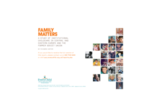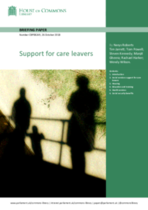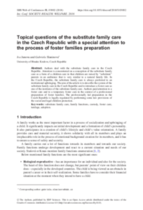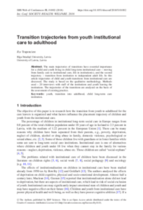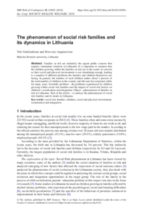Family Matters: A Study of Institutional Child Care in Central and Eastern Europe and the Former Soviet Union (Shorter Version)
This report reviews the faltering progress made in childcare reform across Central and Eastern Europe and the former Soviet Union over the 15 years since the ‘orphanages’ of Romania were revealed to the world.

